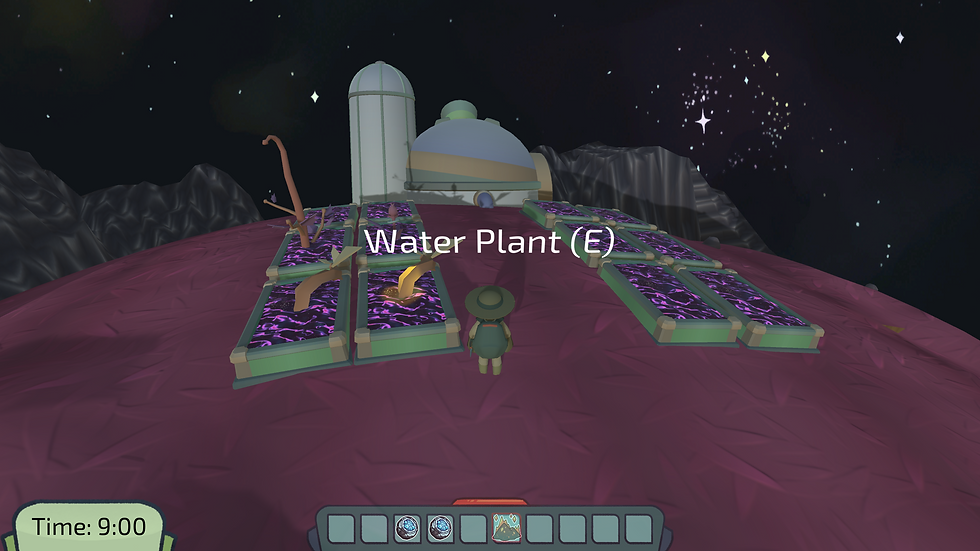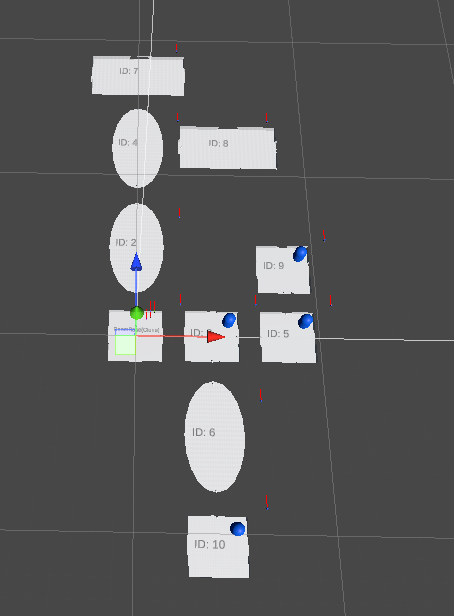Planetary Planter Devblog #4 - Postmortem
- Dan Hartman
- May 4, 2022
- 2 min read
Planetary Planter is a casual third person farming and exploration game where the player can explore a peaceful alien world, farm celestial bodies instead of vegetables and launch them into the galaxy to create constellations that uncover a story as you play. The game will be released on Steam on May 16th, two days after I graduate.
Around the middle of the semester, the game was in a somewhat poor state. The world was far too large and barren, and no amount of art that wasn't in yet at the time could've saved that version of the game from hitting mediocrity at best. As I mentioned in my previous dev blog, my team pivoted extremely well away from that vision of the game into a more streamlined and condensed game. The final product is essentially in our hands minus a couple bug fixes to make before the Steam release.
What went right?
The first thing that comes to mind is our team itself. When we were greenlit for development this semester, our game was scoped fairly low compared to the other games in our class, so our team size only doubled our numbers to 14 compared to some teams who tripled in size to the 20s. I think this is one of the reasons that we managed ourselves so well this semester - our team has the perfect number of people on it. Every aspect of the game has a professional on the team in charge of it, and we weren't given more than we needed to complete our game. Less was definitely more in this situation - I can't imagine the final product being in a better state if we had recruited into the 20s. Not that there's anything bad about having large teams for other senior games, but it simply made sense for our game to have a small team and we benefitted for it.
Our team split into two sub teams, Character & Systems, and Environment, comprised of seven team members each. These would effectively act as scrum teams, and we'd have our own meetings and task board. Sprint planning was still done as a full team in class. This also helped us transition into having a larger team, since the sub teams were the same size as our whole team the previous semester.
What went wrong?
If there was one problem that persisted from last semester into this semester somewhat, it'd be our lack of reflecting on the state of the game at the time. Last semester this was an issue up until the last three weeks of development, where we somehow pulled everything together into a demo that got us greenlit. This semester, it only bled into about the first four sprints of full production until we realized that we were heading in the wrong direction.
The most important takeaway I have from this project is that an abundance of cross discipline communication is crucial. Last semester, discipline chats in our discord were only viewable by the specific disciplines. Unlocking these was the single best decision we made when transitioning to a larger team and I fully understand the importance of these communication avenues now.
Here's some comparison screenshots from when we ended last semester vs. this semester:
The farming area:


Environment:





Comments